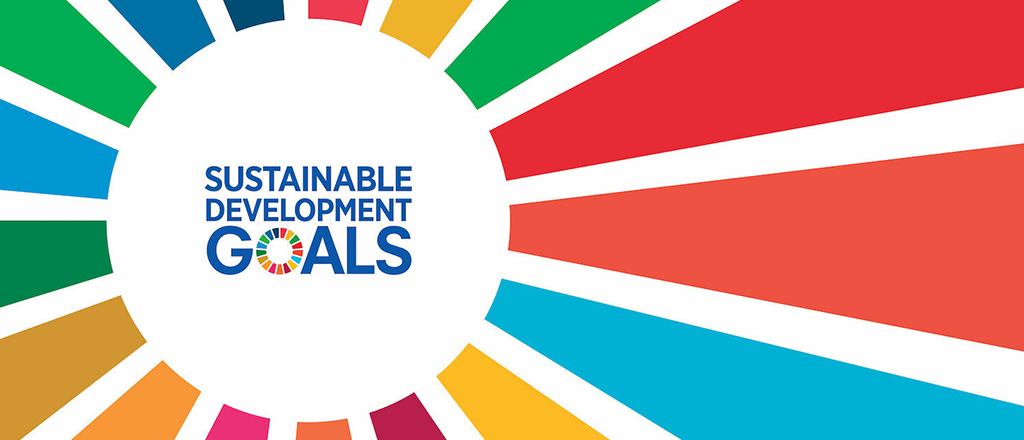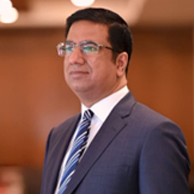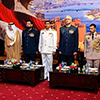Uzbekistan's Remarkable Journey towards Sustainable Development Goals (SDG)

Introduction
Uzbekistan has embarked on a remarkable journey towards achieving sustainable development, eradicating poverty, and improving the quality of life for its citizens. This transformation has been marked by a comprehensive approach that encompasses education, social protection, environmental sustainability, and economic growth. President Shavkat Mirziyoyev leadership has driven Uzbekistan's progress on the path towards becoming on the best economies in the world. Due to untiring efforts of the government ,Uzbekistan has risen by 8 positions and ranked 69th among 166 countries in the world, in the year 2023 ranking of world sustainable goals. Today, the experience of Uzbekistan on the SDGs has become one of the best example for other countries.
In year 2015, Uzbekistan also committed itself to the implementation of the Global Agenda for Sustainable Development for the period till 2030. The Parliamentary Commission for Monitoring the Sustainable Development Goals (SDGs), civil society, youth, and leading national NGOs are actively involved in promoting the SDGs. On December 19, 2019, the UN General Assembly, at its plenary session, adopted a special resolution, “Sustainable Tourism and Sustainable Development in Central Asia,” the initiative of which was put forward by President Shavkat Mirziyoyev in April 2019 in Beijing.
On the initiative of the President of the Republic of Uzbekistan on December 14, 2022, the UN General Assembly unanimously approved the resolution
“On strengthening the role of parliaments in accelerating the achievement of the Sustainable Development Goals.”
Uzbekistan's commitment to sustainable development has earned global recognition. The UN General Assembly adopted resolutions put forward by President Shavkat Mirziyoyev, such as "Sustainable Tourism and Sustainable Development in Central Asia." This unanimous support underscores the international community's recognition of Uzbekistan's leadership in promoting sustainable development.
One of the fundamental pillars of Uzbekistan's sustainable development strategy is its commitment to providing high-quality education accessible to all. Education is rightly recognized as a powerful tool for poverty eradication, improved public welfare, and sustainable economic growth. The nation's efforts in this regard have garnered international attention and support, with President Shavkat Mirziyoyev proposing the World Conference "Social Protection: the Path towards Development" under the United Nations in 2024.
Gender Equality and Women's Empowerment
Uzbekistan has also taken significant steps to promote gender equality and empower women. Initiatives to encourage women's access to higher education have also given priority to the issues of protecting women and ensuring gender equality. State policy is aimed at implementing the principle of equal rights and freedoms and creating equal opportunities for women and men in accordance with the Constitution of Uzbekistan.
Economic Growth and Poverty Reduction
Economic development plays a pivotal role in achieving sustainable development, and Uzbekistan has made substantial strides in this arena. Since 2017, the country has successfully halved its poverty level. Aiming to leave no one behind, Uzbekistan is implementing programs to increase human capital and social inclusion. Notably, the coverage of preschool education has risen from 21% in 2015 to an impressive 70% in 2022. Similarly, higher education enrollment has increased from 8% to 38%, with targeted efforts to support women's access.
National Priorities and Social Programs
Uzbekistan's approach to sustainable development is guided by a comprehensive strategy covering economic, social, and environmental dimensions. The country has set ambitious goals, including a plan to reduce poverty by half by 2026 and further reduce it to 5% by 2030. Attention is also focused on reducing youth unemployment and ensuring employment for an additional 1 million young people by 2030. Infrastructure development is another key aspect of Uzbekistan's strategy. Plans include providing clean drinking water to all settlements, increasing electrified railways, and substantial investments in road construction and reconstruction.
The implementation of the Sustainable Development Goals in Uzbekistan is aligned with the "Development Strategy of New Uzbekistan for 2022-2026." This strategy aims to elevate Uzbekistan to an upper-middle-income country by 2030. It focuses on specific, measurable goals, including poverty reduction and improvements in education enrollment. The strategy also focuses on improving governance and inclusive institutions, fighting corruption, promoting civil society and decentralization, supporting rural development, and ensuring sustainable development in vulnerable regions.
Furthermore, Uzbekistan's commitment to the Global Agenda for Sustainable Development up to 2030 has been unwavering. The engagement of various stakeholders, including the Parliamentary Commission for Monitoring the Sustainable Development Goals, civil society, youth, and national NGOs, has ensured that progress towards these goals remains a national priority.
Environmental Sustainability and Energy
Recognizing the importance of environmental sustainability, Uzbekistan has developed a strategy for transitioning to a "green" economy by 2030. This strategy includes increasing the share of renewable energy sources to 25% of total electricity generation by 2026 and doubling energy efficiency while halving the energy intensity of GDP. Uzbekistan's commitment to the Paris Climate Agreement has led to a significant expansion of its renewable energy capacity.
In this regard, the strategy for the transition to a green economy until 2030 was adopted, which implies increasing the share of renewable energy sources to 25% in total electricity generation until 2026, doubling energy efficiency, and halving the energy intensity of GDP. Uzbekistan plans to launch renewable energy sources (RES) to increase the share of renewable energy sources to up to 30 percent of total electricity production in the country.
Conclusion
Uzbekistan's transformation towards sustainable development is a multifaceted endeavor that encompasses education, gender equality, poverty reduction, environmental sustainability, and economic growth. Uzbekistan is fully committed to these goals and has garnered international recognition and collaboration. As Uzbekistan continues on its path towards sustainable development, it serves as an inspiring example for other nations and a testament to comprehensive strategies and global cooperation in addressing pressing global challenge.
Mr. Khalid Taimur Akram is a renowned expert of International Relations. He has the unique honour of being declared as “Best IR Expert” by Communication University of China, Beijing in year 2021 & 2022. HE is also the receipt of the highest literacy and “Oltan Qalam”, which was bestowed on him by the government of Republic of Uzbekistan, in year 2022. He was also declared as the “Best Writer” in Republic of Azerbaijan. Currently, he is Director of International Academic Network for a Community with Shared Future (IAN-CSF) at Communication University of China in Beijing. He is working as expert with various think tanks those in Pakistan, China, Turkey, Romania, Hungary, Belarus, Russia, Uzbekistan, Kazakistan, Tajikistan, Kyrgyz Republic and Indonesia. He also had been overseeing the Electoral process in many countries as “International Election Observer”.







